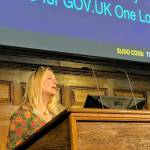Digital privacy advocates say the release of the Russia Report yesterday proves what cybersecurity experts have been saying for years – that Russia is responsible for a campaign of cyberattacks against the UK.
The report, published after a nine-month delay, confirms that Russia attempted to influence the democratic elections of other nations through malicious cyber activity. It noted Russia coordinated phishing attacks to steal sensitive information from UK government agencies including the Foreign and Commonwealth Office.

Ray Walsh, digital privacy expert at ProPrivacy says one most damningly for the UK Government is that the UK has been aware of Russia’s cyberwarfare for around four years.
“This acknowledgement that Russia has been outright attempting to influence democratic elections and the action of the UK government who have sat on this report or so long, may cause some political compensator to call to question the validity of the results of UK elections in this time period, including the already controversial and divisive Brexit referendum, potentially causing the exact kind of political unrest was hoping to stir up in the first place,” he said.
The report concludes that Russia’s cyber capacity and its willingness to deploy it maliciously is a “grave concern” that “poses an immediate and urgent threat to our national security”.
If you liked this content…
“The report indicates that the UK is a primary target for Russian cyberwarfare, with specifics now on the table regarding the kinds of agencies and departments that have been actively targeted by Putin’s malicious cyber-army,” said Walsh.
“The release of the Russia report – and its direct allegations against the Kremlin – indicate a shift by the UK government towards actively identifying and assigning blame to state-sponsored cyberwarfare performed by Russia, a move that reveals the urgency of the problem and the immediate threat it poses to the UK’s national security.”
Walsh noted that cybersecurity firms have been detailing the activities of Russian state-sponsored hackers such as Fancy Bear, APT28, Pawn Storm, Sofacy, Sednit, Tsar Team, and STRONTIUM for years, but this is the first time that the UK government has formally acknowledged that those state-sponsored actors have been directing their efforts directly at UK elections and government agencies.
“Now that the UK has attributed blame, it will be interesting to see how exactly the government proceeds and what it can do to prevent those activities and produce actual changes in light of the findings,” he said.







